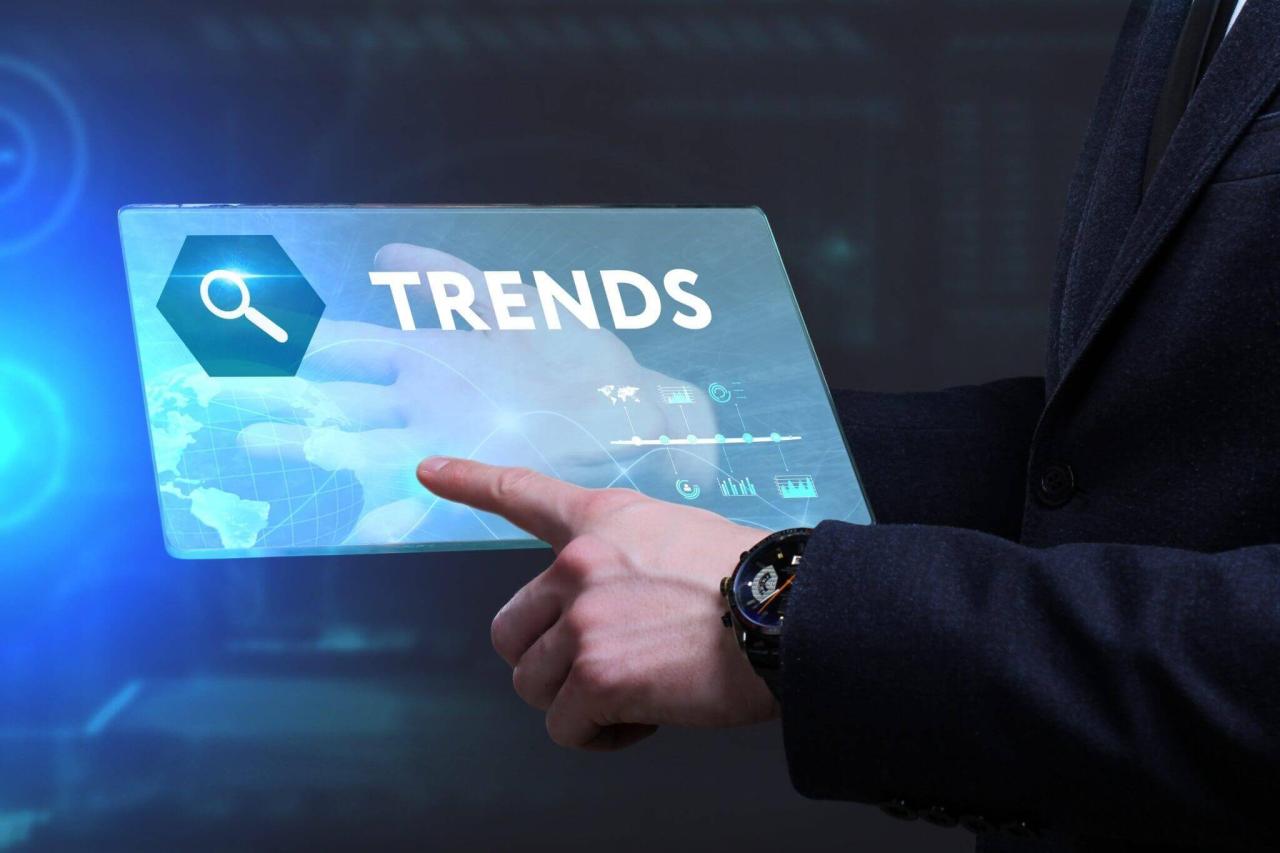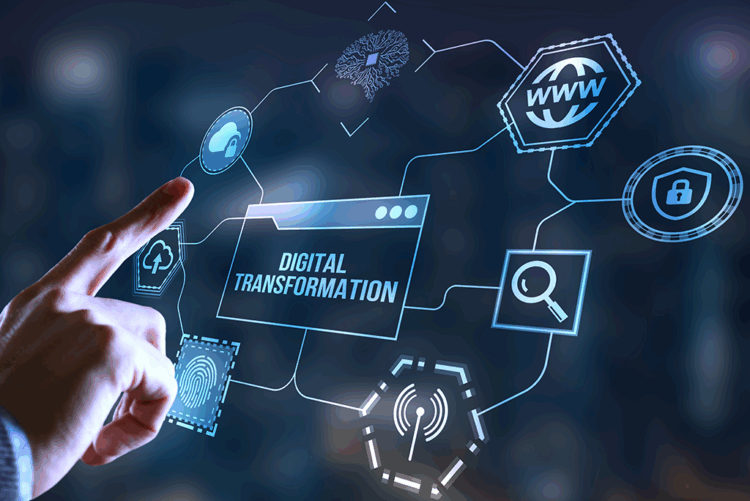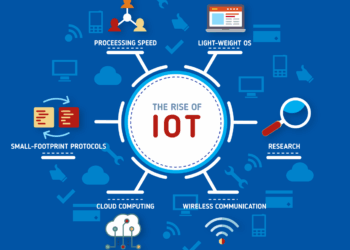In the hyper-accelerated landscape of the 21st century, technology’s relentless pace of change means that staying current isn’t just an option; it’s a strategic imperative. For businesses, creators, and individuals alike, being aware of the most impactful Digital Trends is paramount. These aren’t just fleeting fads; they are fundamental shifts reshaping how we work, communicate, consume, and live. Understanding the driving forces behind these transformations, their applications, and their profound implications is crucial for anyone seeking to thrive, innovate, and lead in the digital age. This is the definitive guide to the essential digital trends you must know to stay ahead of the curve.
The Digital Tectonic Plates

The current wave of digital trends is not random; it is the result of several powerful, converging forces that are fundamentally altering the digital landscape. These forces are creating new opportunities, new markets, and new rules of engagement.
A. The Primacy of AI and Automation
Artificial Intelligence (AI) and its practical application through automation have moved from science fiction to the central engine of digital innovation.
- AI Everywhere: AI is no longer confined to specialized labs; it’s embedded in our daily lives through voice assistants (Siri, Alexa), personalized recommendations on streaming services, and predictive text on our phones. Its influence is expanding rapidly into every sector.
- Generative AI’s Explosion: The recent explosion of generative AI (e.g., ChatGPT, Midjourney, DALL-E) has democratized content creation, allowing anyone to generate text, images, code, and even music with simple prompts. This is fundamentally changing creative workflows, marketing, and the very nature of digital content.
- Robotic Process Automation (RPA): Beyond physical robots, RPA automates repetitive, rule-based digital tasks (e.g., data entry, invoice processing), freeing up human workers to focus on higher-value, creative, and strategic work.
- AI as a Co-Pilot: The future of work is not AI replacing humans, but rather AI acting as an intelligent co-pilot, augmenting human capabilities in fields from programming and design to legal research and medical diagnostics.
B. The Decentralization of the Internet (Web3)
A fundamental shift is underway from a centralized, corporate-controlled internet (Web2) to a decentralized, user-owned internet (Web3).
- Blockchain as the Foundation: Web3 is built on blockchain technology, a decentralized, immutable ledger that enables a new model of digital ownership and trust without intermediaries.
- Digital Ownership (NFTs): Non-Fungible Tokens (NFTs) have introduced the concept of verifiable digital ownership for a wide range of assets, from art and music to in-game items and virtual real estate. This is creating a new, thriving creator economy.
- Decentralized Autonomous Organizations (DAOs): DAOs are a new form of organization where governance is managed by a community of token holders through smart contracts, challenging traditional corporate structures and enabling new models of collaboration.
- The Metaverse: The metaverse is the culmination of these trends – a network of immersive, persistent, and interoperable virtual worlds where people can socialize, work, play, and engage in commerce, often powered by Web3 principles.
C. The Evolution of Consumer and Creator Behavior
Digital trends are also driven by a new generation of users and creators who have grown up with technology as an integral part of their lives.
- Gen Z’s Dominance: Generation Z (born mid-90s to early 2010s) are true digital natives. Their preferences for short-form video, authentic content, and personalized experiences are dictating the direction of platforms and marketing strategies.
- The Creator Economy’s Growth: The accessibility of digital tools and platforms has empowered millions of individuals to become creators, building personal brands, monetizing their skills, and engaging with their audience directly. This is a significant shift in how people work and earn a living.
- Shift to Immersive Experiences: Passive consumption is giving way to active, immersive experiences. Users want to be part of the story, not just watch it, which is fueling the growth of gaming, virtual reality, and the metaverse.
The Must-Know Digital Trends
These macro forces are giving rise to specific, tangible digital trends that are impacting every sector, from marketing and commerce to entertainment and work.
A. AI-Powered Personalization and Content Creation
- Hyper-Personalized Marketing: AI-driven algorithms are creating highly personalized marketing campaigns, delivering tailored content, product recommendations, and advertisements to individual users in real-time, leading to higher conversion rates.
- AI-Assisted Content Creation: Generative AI is being used to automate the creation of marketing copy, social media captions, email newsletters, and even visual assets, dramatically increasing the speed and scale of content production.
- Predictive Analytics for Business: AI and machine learning are being used to analyze vast datasets to predict consumer behavior, forecast market trends, and optimize business operations, giving companies a significant competitive edge.
- AI in Customer Service: AI-powered chatbots and virtual assistants are handling routine customer inquiries, freeing up human support agents to focus on more complex, high-value issues.
B. Immersive Technologies and the Metaverse
- The Metaverse as a Social and Commercial Space: The metaverse is evolving beyond gaming. Brands are building virtual stores, companies are hosting virtual events and meetings, and individuals are socializing in persistent virtual worlds. This is a new front for marketing, commerce, and social engagement.
- Augmented Reality (AR) in Commerce: AR is being used to enhance the shopping experience, allowing consumers to virtually try on clothes, place furniture in their homes, or interact with products in a new way, blurring the lines between the digital and physical.
- Virtual and Hybrid Events: The pandemic accelerated the shift to virtual and hybrid events, and this trend is here to stay. Technology is making these events more engaging, interactive, and personalized, with virtual spaces, avatars, and networking tools.
- Virtual Reality (VR) for Training and Collaboration: VR is being used for highly immersive training simulations in fields like medicine and manufacturing, and for virtual collaboration spaces that provide a sense of “presence” for remote teams.
C. The Creator Economy and New Monetization Models
- Influencer Marketing 2.0: Influencer marketing is maturing. Brands are moving from single, large influencers to partnerships with micro- and nano-influencers who have smaller but more engaged and authentic communities.
- Direct-to-Audience Monetization: Creators are increasingly monetizing their content directly through subscriptions, fan donations, and exclusive digital goods (NFTs), reducing their reliance on advertising and platform algorithms.
- The Rise of Live Streaming: Live streaming on platforms like Twitch, YouTube, and TikTok has become a primary form of entertainment and content delivery, fostering real-time interaction and community building.
- Podcast and Audio Content Dominance: The popularity of podcasts, audiobooks, and social audio platforms is soaring, offering a new channel for content creators to connect with a highly engaged audience, often for passive listening.
D. Data Privacy and Ethical Technology
- Increased Focus on Privacy: Consumers are more aware of data privacy issues than ever before. This is driving a demand for greater transparency from companies and a shift towards privacy-first marketing strategies.
- Privacy-Enhancing Technologies: The rise of technologies like federated learning, differential privacy, and zero-knowledge proofs is enabling companies to use data for insights without compromising individual privacy.
- The End of Third-Party Cookies: Major browsers are phasing out third-party cookies, forcing marketers to rethink their data collection and targeting strategies, with a greater emphasis on first-party data.
- AI Ethics: The rapid adoption of AI has brought ethical considerations to the forefront, including concerns about algorithmic bias, data fairness, and the responsible use of generative AI in content creation and decision-making.
E. The Future of Work and Collaboration
- Permanent Hybrid and Remote Work: The traditional 9-to-5 office model is being replaced by permanent hybrid or fully remote work arrangements. This is driving a demand for better collaboration tools, virtual office spaces, and technology that supports a distributed workforce.
- The Gig and Freelance Economy: The number of people working as freelancers or gig workers is growing rapidly. Technology is enabling this shift by providing platforms for finding work, managing projects, and getting paid.
- Automation of Mundane Tasks: Automation and AI are streamlining repetitive tasks, from scheduling meetings to generating reports, allowing professionals to focus on strategic, creative, and human-centric work.
- Digital Wellness: With the blurring lines between work and life, there is a growing trend towards digital wellness, including tools and practices designed to help people manage screen time, prevent burnout, and maintain a healthy relationship with technology.
The Profound Impact for Society and Economy

These digital trends are not just changing how we do business; they are fundamentally reshaping the fabric of our society, our economy, and our culture.
A. Economic Transformation
- New Markets and Business Models: Trends like Web3, the metaverse, and the creator economy are creating entirely new markets and business models, from virtual real estate to NFT-based brand loyalty programs.
- The Skill Shift: The skills required for success are changing. Technical proficiency in AI, data science, and blockchain is in high demand, but so are uniquely human skills like creativity, critical thinking, and emotional intelligence.
- Globalization of Talent: Remote work and digital collaboration tools are making it possible for companies to hire talent from anywhere in the world, breaking down geographical barriers and creating a more globalized workforce.
B. Societal and Cultural Shifts
- Changes in Communication: Communication is becoming more visual, immersive, and real-time through video content, live streaming, and virtual reality.
- New Forms of Identity: The metaverse and social media are giving rise to new forms of digital identity, with users expressing themselves through avatars, virtual goods, and curated online personas.
- Activism and Social Change: Social media and digital tools are empowering young people to mobilize for social change, amplify their voices, and hold institutions accountable on a global scale.
- The Democratization of Creation: The accessibility of digital tools is democratizing content creation, allowing a wider range of voices to be heard and creating a more diverse and vibrant media landscape.
A Guide to Staying Relevant
Staying relevant in this rapidly evolving digital landscape requires a proactive, adaptive, and strategic approach.
A. For Businesses and Organizations
- Embrace the Hybrid Model: Adopt a permanent hybrid or remote work model and invest in the technology and culture to support a distributed workforce.
- Invest in Data and AI: Build a data-driven culture and strategically invest in AI to automate processes, personalize customer experiences, and gain a competitive edge.
- Prioritize Privacy and Ethics: Make data privacy a core tenet of your business and establish clear ethical guidelines for the use of AI and customer data.
- Engage in the Creator Economy: Partner with micro- and nano-influencers for authentic marketing and explore new monetization models and community engagement strategies.
- Prepare for the Metaverse: Start experimenting with immersive technologies and consider how your brand can establish a presence in virtual worlds.
- Upskill Your Workforce: Invest in continuous learning and training programs to ensure your employees have the digital skills necessary for the future of work.
B. For Individuals and Professionals
- Become a Lifelong Learner: The most important skill is the ability to continuously learn and adapt. Invest in courses and certifications in high-demand digital skills like AI, data analytics, and cybersecurity.
- Cultivate Human-Centric Skills: As AI automates mundane tasks, double down on uniquely human skills like creativity, critical thinking, emotional intelligence, and complex problem-solving.
- Build a Personal Brand: Leverage social media and content creation to build a personal brand, showcase your expertise, and connect with a global network.
- Understand the Web3 Landscape: Even if you’re not a developer, understand the core principles of Web3, NFTs, and DAOs, as they are likely to impact your industry in the future.
- Practice Digital Wellness: With the blurring lines between work and life, prioritize your digital well-being. Set boundaries, manage screen time, and maintain a healthy relationship with technology.
- Become Tech-Agile: Don’t just learn one technology; learn how to learn. Become agile in adapting to new tools, platforms, and trends as they emerge.
Conclusion
The digital world is not a static destination; it is an ever-expanding horizon defined by powerful and transformative trends. From the rise of AI and the decentralization of the internet to the new golden age of the creator economy, these forces are reshaping industries, redefining our work, and changing our very lives.
Understanding these digital trends you must know is not just about keeping up; it’s about gaining a strategic advantage. For businesses, it’s the key to innovation and survival. For individuals, it’s the pathway to a future of opportunity, relevance, and impact. The future is being built today, and those who are equipped with the knowledge, skills, and foresight to navigate these digital transformations will be the architects of tomorrow’s world. The time to act is now.











